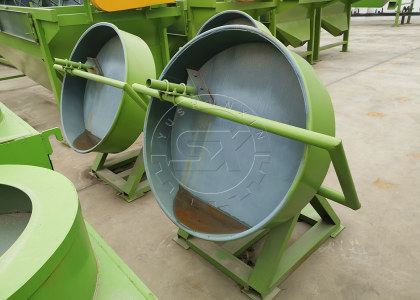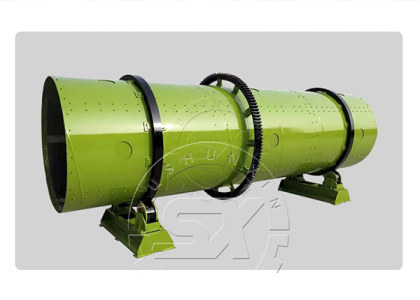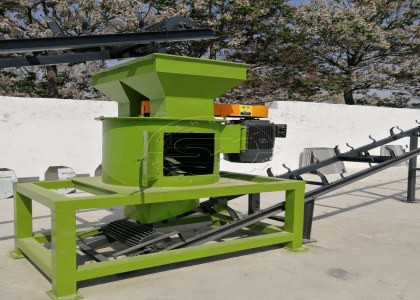Cost Of Organic Granular Fertilizer Production Line

Before knowing the cost of the organic granular fertilizer production line, you’d better know the fundamental steps to make organic granular fertilizer. As we have introduced in our previous articles about organic fertilizer production lines, we can divide this production line into two main processes: composting and granulating. These two processes are indispensable. Other auxiliary fertilizer equipment is in accordance with your budget. Now, let’s talk about the cost of this production line.
How Much Will You Spend In Making Compost?
Raw materials of organic materials are livestock and poultry manure, city waste, or sludge. Also, many other organic wastes can be raw materials. There are many similarities between these wastes, such as unpleasant odor, high moisture content, and bacteria in them. To get better use of them, you need to ferment them first. Organic waste will lose the unpleasant odor and reduce moisture to 20%. One useful way to ferment them is by making compost. Of course, organic wastes can decompose by microbes in them. But the natural decomposition will take you a long time(about 2-3 months). It’s reasonable if you make your own compost for your garden. However, if you intend to make commercial granulated organic fertilizer, it is by no means reasonable. To speed up the composting process, a compost turner is necessary. But how can you choose one composting machine suitable for your factory?
Equipment costs for making organic compost
Cost Of Making organic pellets
To make granular organic compost, the next step is to crush the well-fermented compost. You can use a semi-wet crusher or a vertical crusher to crush the compost into powder. Then, screen impurities in the powder. Till now, you can prepare to make fertilizer pellets. As for granulating machines, follows are for your reference.

pan granulator
First, the disc granulator is the most cost-effective machine. In general, for small-scale organic fertilizer production lines, this type is the best choice, for it can achieve one ton per hour and also can be used in a pilot project. Then, another advantage is easy operation. Because it works in an open area and you can observe the granulation process effortlessly. Whether there’s water deficiency or breakdown, you can adjust it at will. The cost of a disc granulator is about $1,200-$1,500.

drum granulator in compound fertilizer production line
This type of granulator can make organic fertilizer on large scales. It can make particles as the drum rotates. The length of the drum body is determined by its diameter. And both length and diameter are customizable. According to different sizes, the capacity of this equipment is from 1-30 tons per hour. It is often used in a large-scale organic fertilizer production line. It may cost you about $9,000-$20,000.
Rotary drum churning granulator is a new type of granulator developed by MFP company. Compared with disc granulators and rotary drum granulators, this equipment has concentrated particle size distribution and is easy to control. Besides, the end particles have no acute angle, so the pulverization rate is extremely low. The price of a rotary drum churning granulator is $12,000-$25,000.
Cost of other auxiliary equipment
Before granulating, you need auxiliary equipment to process the compost. A rotary screener and a crusher are necessary. The price of these two pieces of equipment is determined by the capacity you produce.
After granulating, you need to reduce the moisture to under 20% so that you can pack and store organic fertilizer. For one-ton scale production, you need a rotary dryer. While if the capacity is larger than this, you also need a cooler.
The final step is to pack, in this production line, an automatic pellet packaging machine can do you a favor. Also, belt conveyor is indispensable.
Thus to summarize, the cost of the organic granular fertilizer production line is not fixed. The cost depends on what equipment you choose. For a whole set of production line of 5-ton per hour capacity, it will cost you about $150,000-$20,000(including construction and workers’ paycheck).
If you still have questions, please feel free to contact MFP factory.


